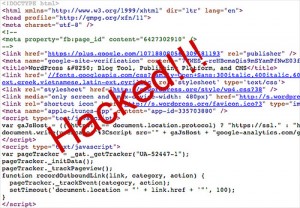
Smart entrepreneurs always have money-saving plans for their start-ups. If your business is struggling in the climate of turbulence, why not try some of these smart money hacks to save money for your business.
1. Be smart on marketing costs
There are actually more activities with lower costs to do for marketing – Collaborative marketing is one of them, meaning combining marketing activities with other business. You can offer coupons, share ad space and split the cost with other business, or just simply develop synergistic relationships or barter services.
2. Go digital
Using more free software or online platforms for managing your daily work is a good way to save money. For example, Cloud-based Google Drive™ is completely free and allows you to create documents, presentations, spreadsheets, and more. There are also task-management and collaboration services such asTrello Asana Basecamp; and CRM tools such asStreak Zoho CRM
Go paperless
It is not only good for the environment, but going paperless can also save your business thousands of dollars per year. By using scanners and setting up an organizational system for electronic documents, you won’t have to rely on purchasing big boxes of paper. There are even smart phones have apps that allow you to snap a picture of documents in scan quality, and send it to other people.
4. Recycle your old office supplies
You can always recycle old computers and computer parts, industrial products made from steel, X-ray films, or even sell unused or old office equipment. There are plenty of recycling companies that will pay you for your recyclable office supplies.
5. Outsourcing small project
Hiring somebody for a small project, or passing it off to another company can eat away at your profits. Getting your existing employees to take care of it can also waste the core skill you originally hired them for. Instead, find a freelancer or outsourcing company that can deliver the necessary services for an affordable price.
6. Find out about tax deductions
It is important for an entrepreneur to know what kinds of tax breaks and deductions you can take. For example, the Residential Renewable Energy Tax Credit gives a 30% tax credit for eco-friendly upgrades to your office. Other deductions may have for: Internet service, industry magazine subscriptions, email contact lists, classes and training to improve industry knowledge, and utilities in your home office.
7. Cut down on maintenance
Most offices have daily cleaning service, but do you really need that? A weekly cleaning service, instead of daily is sufficient enough for most of startups. Reduce the frequency of maintenance costs, and you can save money without reducing the maintenance or necessary service items completely.
8. Buy in bulk
Whether you’re buying advertising space, printer ink or office furniture, it always helps to buy in bulk. Companies will always provide bigger discounts for their products if you buy in bulk. If you don’t meet the minimum quota for a discount, find other businesses you can partner up with so you have the necessary purchasing power.
9. Keep your number of staff lean
Having extra employees can always end up costing you more money. Staffing is something that many people have difficulty dealing in, especially those who are new to running a business. The path towards success, however, typically involves hiring as few employees as is necessary in order to handle daily tasks. This might mean taking on extra work for yourself, but the money you’ll save will make doing so more than worth your while.
10. Do more of your business online
One way to reduce the overall operating costs of running a business is to do so online. Create a website or blog to represent your website in addition to registering social media pages for your company on well-known communities such as Twitter, Facebook, Tumblr and Pinterest. The more you use the Internet and social media to grow a brand, the less expensive your marketing and advertising costs will ultimately be over time.
What is your best money saving tip or favorite money hack?
(204)
Report Post





